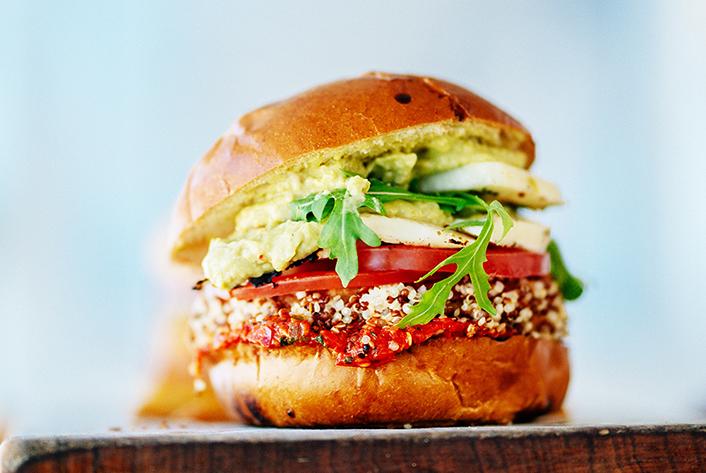It’s no secret that the Covid-19 pandemic decimated the hospitality industry. Across the world, stay at home orders, lockdowns and social-distancing restrictions created an unprecedented challenge for bars, restaurants and hotels: how does the service industry survive, when there’s no one to serve?
The answer is, of course, through diversification (and a fair amount of tenacity).
Operators began embracing new revenue streams they had never considered before, like takeaway cocktails, online cooking classes, e-commerce and a reliance on delivery – which saw exponential growth. According to SEC filings, the four largest food-delivery apps more than doubled their revenue during the pandemic, pulling in over $5 billion between April and September, 2020 alone.
Delivery has become so commonplace, over 53% of adults now say it’s “essential” to their way of life.
Read more: A Beginner’s Guide to Ghost Kitchens
This demand for delivery has led to a surge in ghost kitchens, host kitchens and virtual brands. The three terms are often used interchangeably, but they’re not the same. Here’s how we’re defining them for the purposes of this article.
- Ghost Kitchen: A state-of-the-art, tech-enabled, delivery-only kitchen facility that can house a multitude of brands, including satellite locations of brick & mortar restaurants and virtual brands.
- Host Kitchen: An existing restaurant that optimizes their under-utilized kitchen space by partnering with other brands to cook and sell third-party food, boosting profits without any additional infrastructure. In essence, they open up a miniature, delivery-only restaurant within their existing restaurant.
- Virtual Brand: Virtual brands are delivery-only concepts with no connection to an existing restaurant. These can be housed in Ghost Kitchens or franchised out to Host Kitchens.
Read more: Get the Exclusive Ghost Kitchen 101 Infographic
If you want to know more about ghost kitchens, host kitchens and virtual brands, check out our Beginner’s Guide and download the Exclusive Ghost Kitchen 101 Infographic.
Now that you have the basics down, meet the five leading companies that are leading the delivery-focused dining into the future.
CloudKitchens
CloudKitchens was founded in 2016 by (ousted) Uber co-founder, Travis Kalanick, and is backed by Saudi Arabia’s Public Investment Fund. They’ve opened roughly 40 commercial kitchens throughout the country, though we don’t have too many details as they’re notoriously secretive, and some of their partners include Craft Burger, Fat Sal’s, The Halal Guys, Famous Days and sweetgreen. CloudKitchens bills themselves as ‘turn-key’ solutions for restauranters and claim that a new venue can get off the ground in just three weeks, and breakeven in six months. As you’d expect from the man that brought us Uber, Cloud Kitchens’ spaces are outfitted with all the latest equipment and technology to help optimize delivery-focused concepts.
Kbox Global

Instead of providing the space, Kbox provides the virtual brands to restaurants looking to become a Host Kitchen. They have created over 30 virtual brands, all designed with delivery and millennial / GenZ audiences in mind. Their food offerings are easy to execute by any kitchen team, making it an easy, low-risk way to increase food sales, optimize kitchen efficiency and make additional profit alongside your normal business. The process starts with an onsite kitchen assessment, then their team will pick the perfect brands for you space based on your kitchen, location and local demographic. After that, they’ll train your team and integrate delivery platforms into your kitchen so you’re ready to start making more revenue. Kbox is the fastest growing company of their type in the United Kingdom, and have grown from six physical restaurants to 140 host kitchens in just four years.
REEF Kitchens
When it comes to Ghost Kitchens and Host Kitchens, it’s all about efficiency: maximizing space, reducing waste and boosting profit. REEF Kitchens has found a way to do all of that by building ghost kitchens in refurbished shipping containers and mobile trailers. These state-of-the-art micro facilities are located in over 4,500 parking lots across the country, and REEF claims their kitchens are within delivery radius of at least 70% of Americans. REEF will work with your operations and kitchen teams to refine your product, before helping you launch in your local market and beyond. Their system has worked for brands like Fork & Ladle, Umami Burger, BurgerFi, Fuku, and even Wendy’s.
Kitopi
Kitopi is one of the most prominent Ghost Kitchen providers in the world, though they’re still developing their presence in the United States. They’ve secured over $117 million of funding, and work with more than 200 restaurant partners across three countries, including Nathan’s Famous, Pizza Express, Right Bite and Ichiban. Kitopi uses a proprietary Smart Kitchen Operating System, a custom-built tech stack that optimizes kitchen operations in real time to maximize efficiency, but there’s something else that really sets their business model apart. They handle everything, and we mean, everything. Restaurant partners don’t even have to provide staff, Kitopi has a trained team of kitchen pros that will cook up your brand’s dishes. They also source the ingredients, packaging and even delivery.
Butler Hospitality
Butler Hospitality is the first Ghost Kitchen company to focus specifically on hotels. They pay underperforming hotel kitchens to provide room service to hotels in the area that may not have the resources to cook on-site. Butler Hospitality provides all the necessary training and technology, so all host kitchens have to do is cook. Their team of uniformed, full-time ‘Butlers’ (delivery people) promise to deliver food in less than 30 minutes, and their model seems to be working. The company has reportedly doubled their revenue year on year. They’re currently operating in New York, Miami, Chicago, Washington D.C., and are expected to expand quickly. According to Butler Hospitality, the ability to have room service helps raise star ratings on OTAs, increases ADR and attract high volume guests, like airline crews and corporate bookings. Some of their more notable partners include Oxford Hotels, The Godfrey Hotel, Museum of Ice Cream, &pizza and Ess-a-Bagel.
Follow us on Facebook and Instagram to stay up-to-date on the latest industry news.
